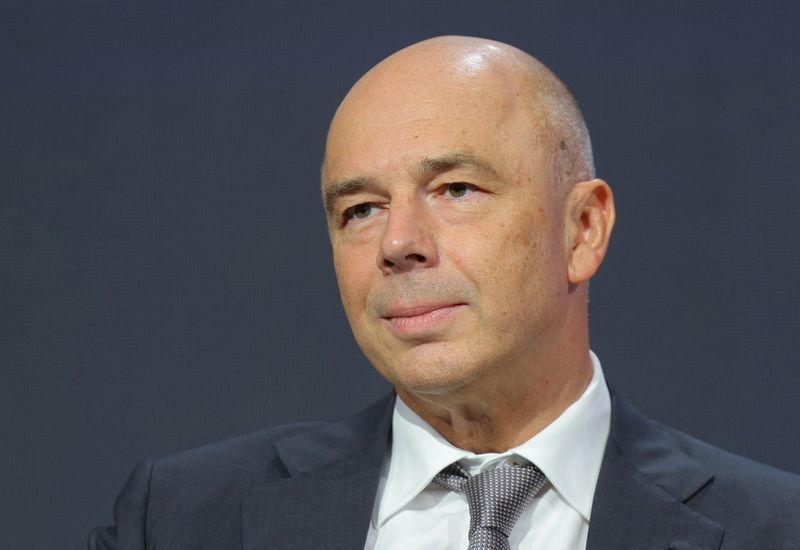(Reuters) - Russia is sticking to plans to reduce its budget deficit in the coming years while ensuring that key areas, including national security and the armed forces, remain well funded, Finance Minister Anton Siluanov said on Monday.
Steadily improving budget fulfilment data means that Russia should post a 2023 budget deficit of around 2% of gross domestic product (GDP), in line with its initial forecast, Siluanov said.
Russia's January-August budget deficit narrowed to 2.361 trillion roubles ($24.37 billion), data showed last week.
After deviations in 2023 and 2024, Siluanov said Russia planned to return to following its budget rule in full in 2025.
Under its budget rule, Russia sells foreign currency from its National Wealth Fund (NWF) to make up for any shortfall in revenue from oil and gas exports, or makes purchases in the event of a surplus.
Siluanov said that non-oil and gas revenues were positive and that expenditures were now at a normal level after increasing at the start of the year.
Military production has driven a strong recovery in industrial output, and analysts say that state defence contracts have been a key driver in Russia's return to GDP growth so far this year after a 2.1% contraction in 2022.
Reuters reported exclusively in August that Russia had doubled its 2023 defence spending target to more than $100 billion, or a third of all public expenditure.
In addition to military and security spending, Siluanov said funding would also be ensured for social support for vulnerable citizens, technological development, and integrating the four regions of Ukraine that Russia claimed last October to have annexed.

Moscow proclaimed the annexation of Ukraine's Donetsk, Luhansk, Kherson and Zaporizhzhia regions shortly after holding so-called referendums that were rejected as bogus and illegal by Kyiv, the West and a majority of countries at the United Nations.
($1 = 96.8675 roubles)